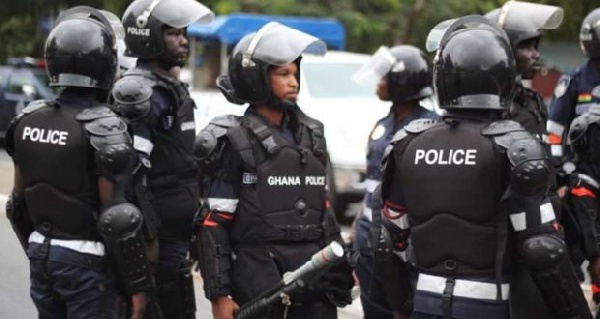Mrs Dede Bedu-Addo, a Gender and Social Development Consultant has called for the establishment of Domestic Violence and Victims Support Unit (DOVVSU) of the Ghana Police Service in the Metropolitan, Municipal and District Assemblies.
She said the units should be equipped with well trained staff and the necessary resources whilst critical consideration should be given to detach DOVVSU from Police Service.
Mrs Bedu-Addo made the call when presenting a draft report on “The Challenges Victims of Domestic Violence Face in Accessing Justice in Brong-Ahafo Region,” at a Validation and Dissemination Workshop in Sunyani.
She noted that the attachment of DOVVSU to police stations criminalizes all domestic violence (DV) cases and therefore, discourage victims from reporting less severe cases.
The research was initiated by ActionAid Ghana, Brong-Ahafo Region Rights Programme.
It was undertaken in Asutifi, Tain, Dormaa, Techiman and Wenchi Districts, which recorded the highest cases of DV in the Region.
Available statistics from DOVVSU used for the research indicated that 109,784 DV cases were recorded from January 1999 to May 2010.
The top 10 DV cases reported were non maintenance, assault, defilement, threatening, offensive conduct, stealing, rape and abduction.
Mrs Bedu-Addo said Brong Ahafo Region had the highest cases of DV in the country.
Out of the 12,919 cases reported in 2008, 28 per cent were from the Region followed by Ashanti Region, 12 per cent and Upper West Region with the lowest of two per cent.
She said the national trend from 2005 to 2010 suggested that the introduction of DV Law in 2007 had made some impact on the over-all incidence of offences, recording the highest report of cases due to increased awareness of the criminality of the act and as well as increasing awareness and confidence in the judicial system for redress.
Mrs Bedu-Addo noted that key agencies, such as DOVVSU, Commission on Human Rights and Administrative Justice and Department of Social Welfare reviewed non-maintenance of children and spouses as the highest among all offences followed by spousal assault and battery.
She said men who were often the perpetrators needed to be educated to live up to their responsibilities as fathers and husbands.
The report indicated that victims faced socio-cultural, economic, physical, emotional and institutional trauma, while some cultural beliefs and social expectations discouraged women from seeking justice when abused and also believed that DV was normal occurrence in marriage.
Mrs Bedu-Addo said victims of DV were usually women who were unemployed and economically dependent on the perpetrators, others perceived that some perpetrators were able to influence the justice system to their disadvantage and therefore failed to report DV cases to the appropriate quarters to seek redress.
She pointed out that men who were perpetrators should be encouraged to participate in the campaign against gender-based violence while the authority and power of chiefs, religious and traditional authorities should be strengthened and given legal backing so that their ruling on less severe DV cases should be binding on perpetrators.
Flaunting of such rulings should also become contemptuous and punishable by law.
Mrs Christina Amarchey, Regional Programme Officer of Action Aid Ghana observed that victim and survival of abuse still face many challenges that hinder them from accessing justice.
She noted that violence against women violated women’s fundamental human rights and must be addressed by collective interventions.
Regional News of Friday, 30 November 2012
Source: GNA
Gender Consultant advocates establishment of DOVVSU Offices in all districts

















